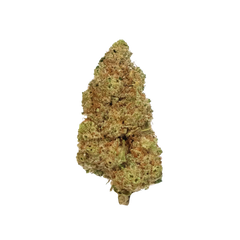Delta 8 vs. Delta 9 vs. Delta 10: What's the Difference?

Delta 8, Delta 9, and Delta 10 are three of the many cannabinoids found in the cannabis plant. While they share similar structures, they differ in their properties, effects, and legality. In this article, we'll compare Delta 8, Delta 9, and Delta 10, helping you understand the unique properties of each.
Delta 8 THC
Delta 8 THC (Δ8-THC) is a psychoactive substance found in the cannabis plant. Delta 8 THC has a milder psychoactive effect compared to Delta 9 THC, meaning it produces a less intense high. Delta 8 THC is federally legal under the 2018 Farm Bill, but some states have restrictions on its use. Delta 8 THC can provide benefits such as pain relief, anxiety reduction, and improved mood.

Delta 9 THC
Delta 9 THC (Δ9-THC) is the most well-known and potent psychoactive cannabinoid found in the cannabis plant. Delta 9 THC is responsible for the "high" associated with cannabis use. It is considered a controlled substance and is currently illegal under federal law in the United States. Delta 9 THC can provide benefits such as pain relief, appetite stimulation, and reducing nausea.

Delta 10 THC
Delta 10 THC (Δ10-THC) is a relatively new cannabinoid that is gaining popularity. It is a structural analog of both Delta 8 THC and Delta 9 THC and is believed to have similar properties to both. Delta 10 THC is not as well-studied as the other two, and there is limited information on its effects. Delta 10 THC is currently unregulated, but it is important to source it from a trusted vendor.
Differences in Effects
While Delta 8, Delta 9, and Delta 10 share similar structures, they can produce different effects. Delta 8 THC is known for its milder psychoactive effect, which can provide stress relief and enhance focus without causing anxiety or paranoia. Delta 9 THC is more potent and known for its euphoric and relaxing effects. Delta 10 THC's effects are less understood but may produce euphoria and energy.
Legality
Delta 8 THC is federally legal under the 2018 Farm Bill. However, some states have regulations on its use. Delta 9 THC is currently illegal under federal law but is legal for medical and recreational use in some states. Delta 10 THC is currently unregulated but may become subject to regulation as its popularity increases.
When comparing Delta-8 vs. 9 vs. 10, the Jelly Roll strain stands out as a great option for those who prefer a mellow high without the intensity of Delta-9 or the quick onset of Delta-10—ideal for unwinding without overwhelm.
If you're exploring 25mg CBD gummies for everyday wellness, it can be helpful to read about others’ experiences with cannabinoid edibles. This personal story about taking a 100mg Delta-8 gummy offers insights into how different doses can affect the body.
Conclusion
Delta 8, Delta 9, and Delta 10 are three distinct cannabinoids found in the cannabis plant. Understanding the differences between the three can help you choose the right product for your needs. While Delta 8 THC is federally legal and has a milder high, Delta 9 THC is more potent and illegal under federal law. Delta 10 THC is a newer cannabinoid with limited research, but it shows potential. Always source products from reputable, lab-tested vendors, and consult with a healthcare professional before using any cannabinoid product.




Comments